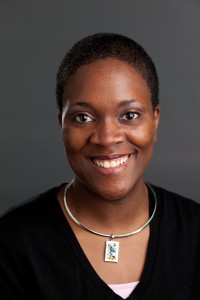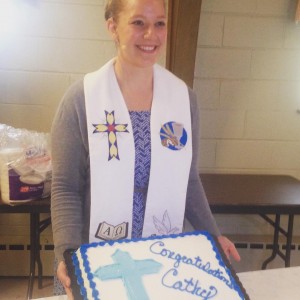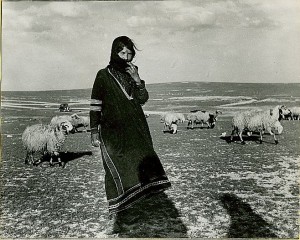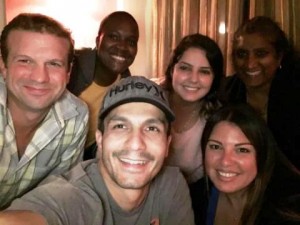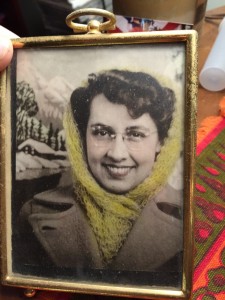After receiving the MDiv degree from Fuller Seminary in 2013, Debbie Montzingo served Renew Covenant Church as Associate Pastor. Currently she serves as an itinerant preacher in the greater Seattle area while awaiting full-time call to a church. Debbie has raised three brave children who love Jesus and refuse to accept easy answers. Shoreline Covenant Church in Shoreline, WA, is where she and her husband Darrel currently find home.
My 26-year-old daughter—a novelist, screenwriter, and artist—has nearly always been a person of faith, but she has struggled with church her whole life. When she was very young, she would volunteer in the nursery, even though she didn’t particularly like children, just so she didn’t have to sit in the service.
But recently in her adopted city of Nashville, she found a church that made sense to her. The worship and preaching made sense to her. The value tangibly expressed towards art and creativity made sense to her. The teaching on mercy and justice made sense to her. The idea that with God leading the way, even a single person could make a discernible difference in the world made sense to her. She sent me links to sermons that had made her think. It all made so much sense to her that she signed up for the membership class.
And then she read the membership covenant.
The scary language about giving the church leadership nearly blanket authority over its members aside, she realized something that didn’t otherwise seem obvious: this church specifically excluded women from positions of pastoral leadership, claiming that the Bible required it. Just a few years before, my daughter had said, “If I really believed the Bible said that women could not serve the church in the same ways that men could, I am not sure I could still be a Christian.” I was angry. She finally finds a church home and immediately encounters a stumbling block.
Publicly, she asked some pointed questions. The elders leading the meeting were visibly uncomfortable, but they held their position. She said, “So you’re telling me, if you had, say, a Pastor of Missions position open, and my mother, who is a preacher and a pastor, wanted to apply for the job, you wouldn’t even consider her application?” Yes, they said, still uncomfortable, that’s correct. They said they would be willing to meet with her privately to discuss it further.
She called me, and I encouraged her to read The Blue Parakeet, by Scot McKnight, as a sort of easy entry primer on how you can read the Bible more faithfully and affirm women in ministry. She downloaded it immediately and started reading it. “How can I change their minds?” she asked. Well, I said, I don’t think you can. They will probably be polite and listen, but in the end you will not be the one to change their minds.
But she would not be deterred by my cautions. She had learned something from their very teaching from the pulpit about the power of even one person forging forward in the cause of justice in the power of God. She said, “What if I’m the one God uses to plant the seeds of change? What if they never hear a dissenting voice?” She scheduled the meeting and asked them to read The Blue Parakeet.
One of the elders met with her. He already had a copy of The Blue Parakeet in his hands when she arrived. He said to her, “We really believe that we would be unfaithful to Scripture to change our minds. We know we are losing good people because of our position, but if we change our minds about this, what are we saying about the authority of the Bible? So we really hope that we can find a way to read Scripture differently.”
Wait, what? Oh, me of little faith.
Now, they haven’t changed their position (yet), but she got them into dialogue. She didn’t become a member of the church, but she is volunteering in some of their ministries and remaining involved.
Beloved daughter, don’t listen to me when the Spirit’s voice is so compelling. Be bold, be brave, and be kind. Maybe you are in Nashville for such a time as this. Why not you?
